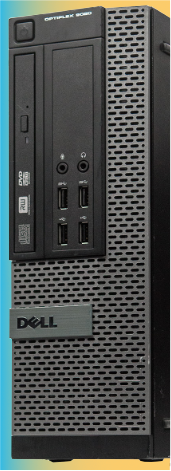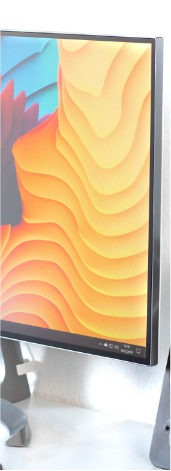Earth Day: Don’t Let it Go to Waste
If you haven’t noticed by now, we’re a company committed to sustainability. Our practices and processes are all geared towards making a zero impact on our planet. That is, we want nothing we touch to ever touch a landfill, nor do we want to take anything away from our environment that is beneficial.
So, it’s no surprise that Earth Day has a special meaning to us, and we are further empowered to take responsibility for the planet we call home. As a company committed to lead principles, we strive to continuously improve our processes, our planet and ourselves by eliminating waste. In our culture, the eight wastes we focus on are
![]()
The majority of these wastes are also what everyone can be on guard against as Earth Day approaches, as each poses a threat to our environment and its sustainability. Let’s take a closer look at each of these…

Overproduction - what do you have around your home that you have made too much of or purchased and end up throwing out? The biggest culprit is food. On average, each one of us wastes one pound of food per day. Collectively, it ends up being 103 million tons, or 30-40 percent of the food supply.
Even though food is by nature a biodegradable resource, it’s often disposed of in plastic garbage bags, which aren’t. Composting food is a great alternative to simply tossing the food into the garbage, and eventually into a landfill.
As for computers, the environmental impact of tossing one out because the next best thing has come can be devastating. Mercury, lead and cadmium are harmful to the environment and we’re vigilant in capturing those materials with reliable vendors who share our commitment to a green process.

Overprocessing - It’s a little tougher to visualize this under your own roof, but if you have an automatic dishwasher, do you also first wash the dishes before you load them into the dishwasher? It’s been a long held belief that pre rinsing is necessary, but some experts say it could have the opposite effect on your dishes. It’s obviously also better for water conservation if you don’t.

Excess inventory - Gosh, we have STUFF. Loads of it. Often we purchase something, only to realize we had purchased it already, months before, and just forgot we had it. Aside from the monetary impact, it also impacts usable space in homes. There’s the adage that we tend to fill the spaces we’re given, and buying a larger house won’t solve that problem. Review your “inventory” critically, and minimize the items you haven’t touched in months or years. The process can also impact how much you purchase things in future. (Is this a need? Is there a place for it? How much will it really be used? How many people will use it?)
Our Team scrutinizes our quantities of every item we use in order to ensure we’re not out of anything that would slow production, and we’re not bursting at the seams with inventory we don’t need. Recently we’ve also taken a hard look at the product catalog we have and scaled it down to align our offerings with what people are looking to purchase.

Transportation - Given our current economic situation, we know how much it costs to use our vehicles. Taking a more strategic approach to purchasing groceries, clothing, and other items we consume regularly can conserve on the fuel as well as time we use. To that extent the online shopping economy that has blossomed during the pandemic has opened more avenues for a wider range of products, saving you a trip. The caveat here is that much of the food we’re ordering is pre-made, and comes with packaging that can’t be recycled. Eating “real food” like the grocery basics involves less packaging than take out.
As companies like ours grow, new locations opened also serve to mitigate the amount of transportation needed to collect and process ITAD devices for refurbishing.

Waiting Time - Along the same lines as ordering online impacting your own transportation, it also saves a lot of time. If you want to run through a drive through, any delays can mean that your vehicle is idling longer than intended. And it’s a given that the more you’re in a hurry, the more likely you are to end up behind a person who’s placed an order to feed a little league team.
Wasted motion - We’d wager a bet that any project in the house that has you moving around more than you need to is going to be related to excess inventory. After all, what’s in your way if you are engaged in a task that has you running back and forth to get to the items you need to complete that task? Or are you spending more time searching high and low to find “the good scissors” that aren’t where they should be and you can seem to find them anywhere. Stop long enough to determine how you can organize the tools you need and either get rid of or reposition those you don’t.

Defects - If it can’t be fixed, throw it away, thoughtfully. If it can, do so and then keep it maintenanced. The trick is to take care of things before their demise interrupts your process. Dumpsters are filled with appliances that may just require a couple of parts to get them working as good as new. If the refrigerator is truly beyond repair, seek out the appropriate recycler who will reuse or recycle the commodities, and safely dispose of any materials that can harm the environment.
In our processes, we inspect every device carefully before we refurbish it. When it’s defective, and simply can’t be repaired to our standards, it’s a loss and can affect how low we can list the other devices online. Ultimately, defects cost everyone money, and when the goal is to offer refurbished computers to people instead of having them shop for new, it limits our ability to make that offer as competitive as we’d like. Even though we know computers that don’t make the cut will end up in the hands of vendors who will recycle the commodities in an environmentally responsible manner, we’d much rather make it available to our customers.

Unused employee genius - We don’t know it all, but surely you know someone who does. Or if you do have a useful and effective solution to a problem you see, SAY something. Keeping quiet isn’t humble, it can prolong a bad, inefficient process, which is a real shame and a real waste.
We encourage everyone to share their ideas, their gifts and unique talents to help us create a culture of continuous improvement and one that empowers our uniqueness. Likewise, we extend that to anyone we encounter to tap into their own unique talents to improve our earth, which essentially improves all of our lives.








